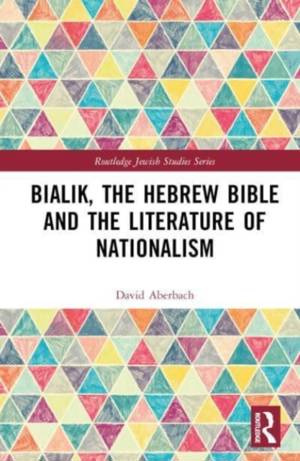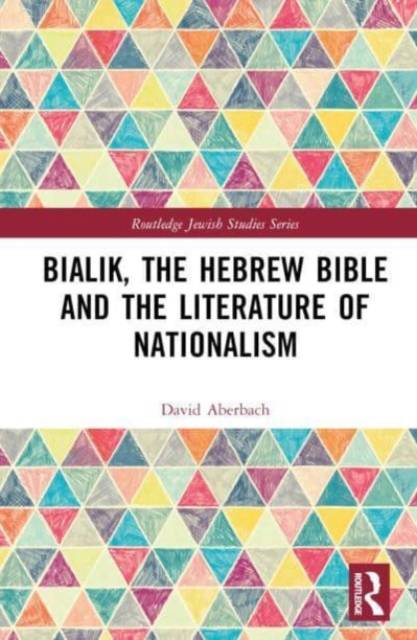
- Afhalen na 1 uur in een winkel met voorraad
- Gratis thuislevering in België vanaf € 30
- Ruim aanbod met 7 miljoen producten
- Afhalen na 1 uur in een winkel met voorraad
- Gratis thuislevering in België vanaf € 30
- Ruim aanbod met 7 miljoen producten
Omschrijving
This book explores the life and poetry of Chaim Nachman Bialik (1873-1934) in the context of European national literature between the French Revolution and World War I, showing how he helped create a modern Hebrew national culture, spurring the revival of Hebrew as a spoken language.
The author begins with Bialik's background in the Tsarist Empire, contextualizing Jewish powerlessness in Eastern Europe in the late nineteenth century. As European anti-Semitism grew, Bialik emerged at the vanguard of a modern Hebrew national movement, building on ancient biblical and rabbinic tradition and speaking to Jewish concerns in neo-prophetic poems, love poems, poems for children, and folk poems. This book makes accessible a broad but representative selection of Bialik's poetry in translation. Alongside this, a variety of national poets are considered from across Europe, including Solomos in Greece, Mickiewicz in Poland, Shevchenko in Ukraine, Njegos in Serbia, Petőfi in Hungary, and Yeats in Ireland. Aberbach argues that Bialik as Jewish national poet cannot be understood except in the dual context of ancient Jewish nationalism and modern European nationalism, both political and cultural.
Written in clear and accessible prose, this book will interest those studying modern European nationalism, Hebrew literature, Jewish history, and anti-Semitism.
Specificaties
Betrokkenen
- Auteur(s):
- Uitgeverij:
Inhoud
- Aantal bladzijden:
- 274
- Taal:
- Engels
- Reeks:
Eigenschappen
- Productcode (EAN):
- 9781032412474
- Verschijningsdatum:
- 25/05/2023
- Uitvoering:
- Hardcover
- Formaat:
- Genaaid
- Afmetingen:
- 156 mm x 233 mm
- Gewicht:
- 452 g

Alleen bij Standaard Boekhandel
Beoordelingen
We publiceren alleen reviews die voldoen aan de voorwaarden voor reviews. Bekijk onze voorwaarden voor reviews.











